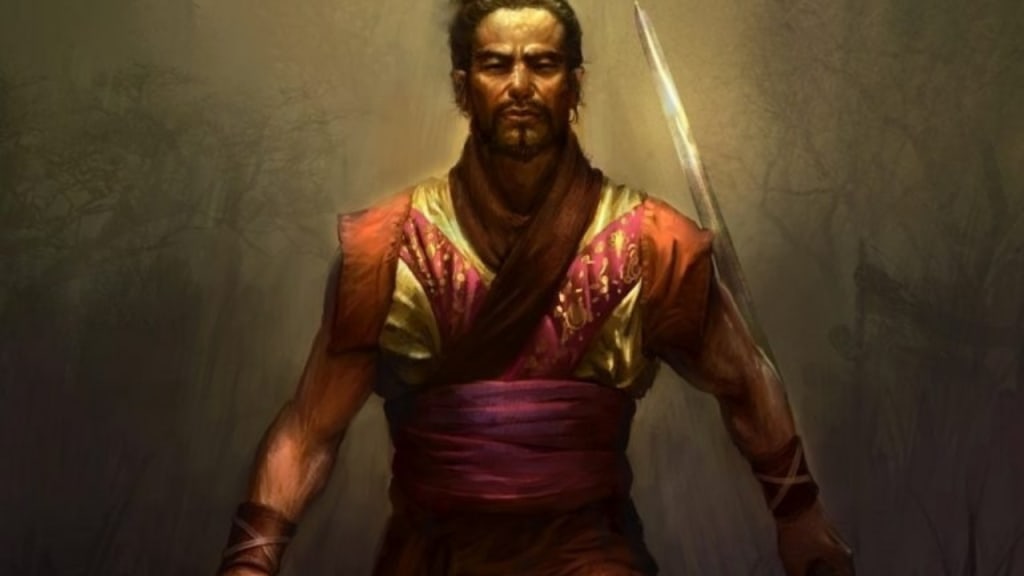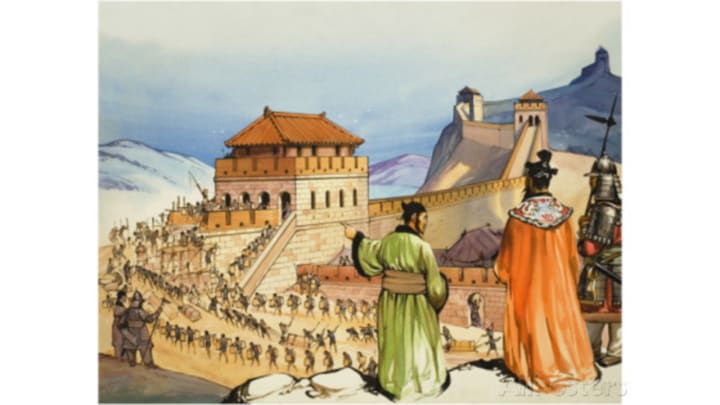This Little Black Book Inspires Powerful World Leaders
... and Billionaire Entrepreneurs

I challenge you to imagine how the most powerful world leaders can singularly be influenced by one little black book. A little black book that was authored over 2,000 years ago in ancient China.
A book that was written by a highly experienced military strategist whose penmanship has been immortalized as the ultimate guide on how to defeat your competition.
A book whose principles have been followed, not only by the most powerful military generals and political leaders the world has ever known but principles that have served as a guide for billionaire entrepreneurs.
Welcome to “The Art of War” by Sun Tzu.
Since 2016, while children in the US and Western Europe binge on Snapchat and TikTok, in contrast, Japanese children as young as 6, are schooled on Sun Tzu’s strategies, strategies that are not limited to militarized and political scheming, but strategies that Japanese parents have found to be highly adaptable.
It’s worth noting that since its republication in Japan in 2016, parents have widely accepted that “The Art of War” enables their children to navigate through Japan’s often competitive education system.
And while this cultural contrast in parenting may not, on the surface, be a cause for concern here in the West, it should. And here’s why.
While parents in the West may feel that “The Art of War” is unsuitable for the average 1st grader, the core principles are laid out in less than 60 pages making it easy for younger readers to digest.
Taking inspiration from “The Art of War”, Robert Greene’s “The 48 Laws Of Power” observes Sun Tzu’s teachings, adapting the core principles in 48 short stories or parables.
At the end of each parable, Greene provides a conclusion - a conclusion that relays a lesson to be learned from the hero’s victory or folly.
Take, for example, the story of Zhuge Liang. Here was a brave and highly strategic military general, who had spent several years fighting his adversary Li Guang. As a result, the City’s economy is compromised through the ongoing war effort.
One fateful day, his soldiers alert him that his arch-rival, Li Guang (alongside 100 horsemen) is approaching the city walls. Zhuge Liang knows that if Li Guang and his men were to invade the City, the City would be captured with relative ease. At once, Zhuge Liang devises a cunning plan.

He orders the city gates to be opened and for everyone within the City to hide. With the city gates wide open, Zhuge Liang’s actions appeared to be aiding his arch-enemy to ride into the Kingdom unobstructed.
At the same time, Zhuge Liang climbs to the top of the city walls and calmly plays a lute-like instrument.
Sitting on the city walls cross-legged, Zhuge Liang sings heartily, eyes closed and at one with himself and the universe.
At seeing this spectacle - Li Guang an equally wise military man is suspicious.
Sure, he could ride through the open city gates and slaughter its inhabitants with ease. But for Li Guang, this battle seems too easy, for he and Zhuge Liang were old adversaries.
Furthermore, Li Guang is fully aware of Zhuge Liang’s bravery and military expertise. Yet, here was the protector of the city, Zhuge Liang singing merrily on the wall.
“No, this is too easy”, Li Guang thought, “this is clearly a trap”.
After what seemed like an eternity but was in fact a few minutes, Li Guang orders his men to cut a hasty retreat. As a result, through Zhuge Liang’s quick thinking, he and his kingdom were saved.
You see, when your enemies have a clear advantage over you - whether through strength, power or wealth, do not seek to aggravate them. Instead, lean into your enemy’s paranoia.
Once your enemy’s paranoia is triggered, the balance of power is now yours.
And in the words of Sun Tzu:-
“All warfare is based on deception”

One of the most important elements of “The Art of War” however, lies in the first chapter which essentially teaches readers how to plan. While the language used may seem outdated, the key principles are applicable in 2022.
In planning your next move, Sun Tzu advises you to consider the moral law. Today you can interpret that to be the legality of your plans. Do your plans fly in conflict with the law?
Secondly, you need to consider the environmental conditions - be it night or day, cold or hot.
While this rule may seem irrelevant, when the average person is not a military general, substitute climate conditions for the situational condition - such as - are you making plans that could be impacted by a falling or a rising economy?
In addition, what is the temperature or, the sentiment that your plans will be supported by your friends, business associates, and family?
Thirdly, Sun Tzu talks about Earth - meaning what are the dangers that lie ahead for you? As you can imagine, Tzu is referring to those unexpected and known risks that could derail your plans.
In the fourth principle, Tzu espouses the need for wisdom, compassion, and bravery.
And lastly, Sun Tzu focuses on method and discipline. While Tzu uses the military ranks of command, this principle can be transferred to the order in which you prioritize your tasks and the method in which you accomplish the most important tasks over the nice-to-haves.
One of the growing concerns in the education system in the West is the gradual dumbing-down of youthful pastimes.

While older generations pursued playtime - role-playing situational encounters observed in their parents or from movies and TV shows, today’s generation of children prefer to focus on virtual worlds and social media.
And while virtual worlds and social media are pleasurable pastimes, they serve to portray a stylized world of fantasy that leaves children unprepared for the real world ahead.
Author: Ella Graysun
About the Creator
Eleanor Graysun
Former technical writer. Now reigniting my love affair with creative writing.






Comments
There are no comments for this story
Be the first to respond and start the conversation.